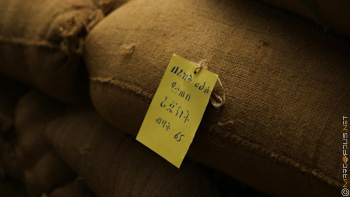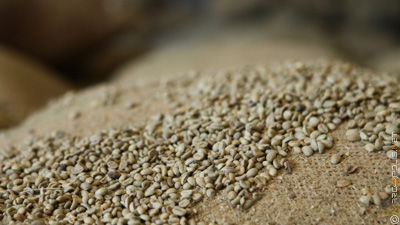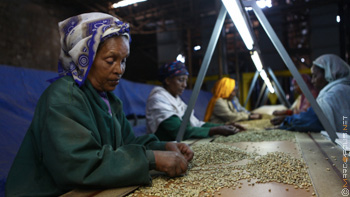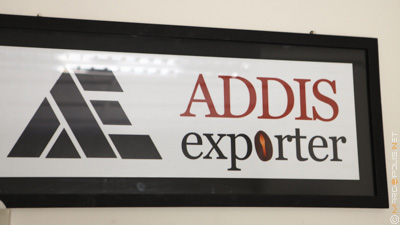2014 will be challenging for Ethiopian coffee producers and exporters, says Addis Exporter
Michael Mamo, Managing Director of Addis Exporter
“There are more investments in farming and more coffee exporters are actually getting into the coffee trade in Ethiopia. However 2014 is going to be a very challenging year because the international market price has dropped dramatically and our local market situation remains difficult. The local market price is often higher than the international and for farmers, if they don’t make money, they aren’t going to produce coffee,” explains Mr Mamo.
Interview with Michael Mamo, Managing Director of Addis Exporter

What is your overview of the coffee export industry in Ethiopia and what is your outlook for 2014 and beyond?
In general the coffee industry has been growing. For the past three years, every year has been getting bigger and bigger so it is very positive. There are more investments in farming and more exporters are actually getting into the coffee trade. For 2014, it is going to be a very challenging year because the international market price has dropped dramatically and our local market situation is still very difficult. The local market price is often higher than the international market and for farmers, if they don’t make money, they aren’t going to produce coffee. With their costs of production and what they can sell it for, they are actually going to lose money so I think it’s going to be a very challenging year.
 Can you give you us a brief history of Addis Exporter. You have been in business for about 41 years. How has the industry been evolving over this period of time?
Can you give you us a brief history of Addis Exporter. You have been in business for about 41 years. How has the industry been evolving over this period of time?
I haven’t been around for 41 years but I’ve been back in Ethiopia from the U.S. for the last ten years. Our company started in the Haile Selassie time period so we were in business during the dark time as well as the current government time period. Previously in the coffee industry, they used to just sell Ethiopian coffee; now they are selling more specific coffees with regional names like Sidamo and Yirgacheffe and they are getting even more specific. The coffee industry is getting bigger and bigger and with Ethiopia being the birthplace of coffee and having many varieties, I think it gives us a big advantage. I just see the coffee industry growing more and more even though there are some international market challenges. That happens sometimes.
Does coffee production require certain parameters such as rainforest conditions and other things like that?
As for Addis Exporter’s future plans, we definitely want to be farmers. I think that’s where you have control over your coffee and you can produce at the top-end.
The environment plays a very key role; for example, last year there were parts of the country in which, because of rainfall, we didn’t have a lot of product. Even this year, because of untimely rainfall, the coffee is delayed. At this time we should already have coffee. Most exporters buy coffee from the Ethiopian Commodity Exchange so we should have coffee in the warehouses right now being offered for trade but just because of the untimely rainfall everything has been delayed. The environment is one of the big keys.
You actually were the first company in Ethiopia to get geo-certified to be able to trace the coffee back to its producers. What is the benefit of that?
That is through the Ethiopian Commodity Exchange system. One of the drawbacks that a lot of the buyers complained about was that there wasn’t traceability in the commodity exchange system. Geo-certified means that once the coffee arrives from their washing stations through the ECX warehouses, the coffee will be tagged. It adds more value to the coffee and obviously tells the buyer where the coffee is coming from. That is the key point – buyers want to know and consumers at the end of the day, they want to know where the coffee is coming from. It gives the region names through a particular word. For example, under the name Sidamo there are many different kinds of coffee. They will know if it’s Sidamo Guji, Sidamo Barona and so forth.
 What are some of your biggest export markets?
What are some of your biggest export markets?
Our biggest market pre-ECX was Japan and currently it is the U.S. and Europe.
What type of marketing strategies are you using to increase your market share in the U.S.?
For the U.S., definitely we now want to go towards farming to be in the specialty coffee industry. I think that’s where you get better premiums and I think at the end of the day as exporters we have to go down and work with farmers and actually add value to the coffee and help the community there also grow. There should be a reward system for everybody in the chain.
How many people do you employ in your operation and what impact do you have on the local level?
Seasonally if we have many orders, because we also process coffee for other exporters as well, we can have as many as 500 hand pickers and we also have laborers. We sometimes have 30 men carrying the jute bags, so we have about 530 people per day working at maximum.
You also act as a broker between coffee producers and exporters. How is that side of the business?
 Actually we are working at Addis Exporter as an agent for Falcon Commodities which is a U.K.-based company specializing in high-end coffees like traceable coffees. We are buying more coffees through unions and private businesses that have private estates so there is traceability. Also, some of the union coffees have certifications like fair trade, organic or rainforest that add value to the product. It is a good relationship we have with Falcon; they are very great partners and we see our business with Falcon growing yearly.
Actually we are working at Addis Exporter as an agent for Falcon Commodities which is a U.K.-based company specializing in high-end coffees like traceable coffees. We are buying more coffees through unions and private businesses that have private estates so there is traceability. Also, some of the union coffees have certifications like fair trade, organic or rainforest that add value to the product. It is a good relationship we have with Falcon; they are very great partners and we see our business with Falcon growing yearly.
Do you brand your coffee as organic because it actually adds value to your product?
For us as private exporters we don’t unfortunately because we are buying coffee from the exchange. In order to do that you would need to have a farm or co-ops. They are the ones that do this. There is a third party that comes in, like BCS or CERES, and does the certifications. Once you have the certifications, then you can use the organic, fair trade and other labels to sell your coffee. But for us generally as private exporters, since we are buying from the exchange we don’t have any source of certification.
Is the exchange linked to other exchanges around the world in terms of pricing?
No, we are not. As a domestic market it is an open pricing system. Generally, we follow the New York ICE market which trades Arabica or coffee so basically our market should be in line with New York. There is some sort of price range that we should get from New York when we buy here locally, but it is an independent local market here.
 What are some of the challenges that you face along with the coffee producers at the moment?
What are some of the challenges that you face along with the coffee producers at the moment?
Our biggest challenge is price. At the end of the day, at the price that we buy at locally, can we make a profit trading coffee and is it going to be sustainable? We need the farmers to be sustainable in order to sell coffee. Definitely the first challenge is price and the second challenge is quality. If we can prepare top-end coffee then I think we can still get a decent price for it.
What vision do you have for Addis Exporter for the future?
We definitely want to be farmers. I think that’s where you have control over your coffee and you can produce at the top-end. We are trying to pick areas in the country that are more suitable for coffee. A lot of the areas are definitely suitable but you have different regions like the west and the south, you have Djimma coffees and the top-end Yirgacheffe coffees. So we wanted to be situated in a very high-altitude top-end coffee area and we want to work closely with farmers, also to empower them because we need them to be sustainable.
Do you have any future plans to enter into other commodities besides coffee?
Right now we are focusing on coffee. We have been doing coffee for 41 years and we have a lot invested in that so I don’t see it right now but you never know for the future.
FAIR USE POLICY
This material (including media content) may not be published, broadcasted, rewritten, or redistributed. However, linking directly to the page (including the source, i.e. Marcopolis.net) is permitted and encouraged.